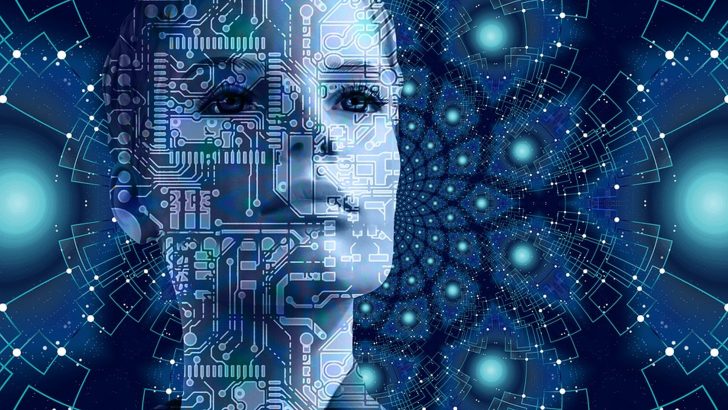Developments in Artificial Intelligence pose challenges which the Church can help us answer, writes David Mullins
It is probably fair to say that for most people, Artificial Intelligence is a concept whose meaning and relevance is still firmly located within the pages of dystopian fiction or vaguely remembered plot lines from half-baked – if enjoyable – movies. Indeed, to shamelessly borrow a theological turn of phrase, for very many of us, its immediacy remains characterised by an ‘already, but not yet’ way of looking at things.
It is, however, absolutely vital that we overcome such stereotypical conceptions and develop as a matter of urgency an ethical and social framework that can orientate us in the face of the very real consequences that this rapidly escalating phenomenon is generating.
For the facts of the matter are these: by international consensus we are currently experiencing a fourth industrial or ‘second machine age’ revolution with the capacity to disrupt entire economies, systems of employment for millions of people globally and our very understanding of what it means to be a human person.
Applications
Centrally embedded within, and the prime mover of all of these challenges is, as suggested above, concepts and ‘real-world’ applications related to Artificial Intelligence.
Generally speaking AI is divided into two categories, Artificial General Intelligence (AGI) and Artificial Narrow Intelligence (ANI).
AGI usually refers to those machines that can operate with “the ability to learn without being explicitly programmed” and who can thus demonstrate many of the reasoning capabilities usually thought of as being the preserve of human beings.
While there is significant hype around this area, much of it justified, much of it that is not, it remains true to say that the emergence of a rationally autonomous machine capable of operating with the equivalent of a reasoning human brain is still some way away.
ANI on the other hand we can take to refer to machines with a significantly faster and efficient ability to perform a limited, but ever increasing number of tasks such as face recognition, language translation or indeed any task involving clearly defined levels of repetition such as factory line work or automated driving.
Some of the other less obvious areas or professions that include significant levels of repetition are medicine/surgery and teaching.
This should alert us to the fact that almost no area of human activity is automatically immune from the impact of developments in the AI arena.
Indeed it is the proliferation of ANI applications that is confronting us with a clear and present danger in terms of what it is that will actually impact on employment opportunities as well as the ordering and direction of human society in the near future.
In fact such is the scale of the perceived threat that in the last year alone the European Commission has appointed 52 experts to a new High-Level Expert Group on Artificial Intelligence, comprising representatives from academia, civil society, as well as industry.
Our own government’s Expert Group on Future Skills Needs estimated in December of 2018 that one in three jobs in Ireland are at high risk (a probability greater than 70%) of being disrupted by the adoption of digital technologies over the next five years. It is estimated that this will lead to a hypothetical loss of 46,000 jobs.
For its part, the Commission of the Bishops’ Conferences of the European Union (COMECE) has also being intensively monitoring the changes robotisation is bringing to the labour market such as increasing polarisation, vanishing of job security for young people and new risks for balancing family/social and work life.
That COMECE has even identified these as areas in which it can offer a significant contribution is down to the fact that its ethical vision is rooted entirely in the Social Doctrine of the Church.
This Doctrine is built on the foundational insistence that a primacy of respect is due to the human being and further, that such respect must be guaranteed and prioritised in any construction of the social order.
That this teaching is also the synthesis of the Church’s historical confrontation with emerging technological and social upheavals makes it ideally suitable as a reservoir of social principles from which we can construct the ethical framework mentioned at the beginning of this piece.
I have referred several times now to the impact AI is having on the world of work and employment. This is a world about which the Church and its social teaching have critically important and positive things to say.
However, as St John Paul II reminded us in his prophetic 1981 encyclical on Human Work, Laborem Excercens, it is also a fact that in some instances, “technology can cease to be man’s ally and become almost his enemy, as when the mechanisation of work ‘supplants’ him, taking away all personal satisfaction and the incentive to creativity and responsibility, when it deprives many workers of their previous employment, or when, through exalting the machine, it reduces man to the status of its slave.”
Certainly one need only look to the explosion in compulsive mobile phone use to see that such ‘slavery’ is far from being the product of a gloomy pessimism.
How human society will navigate the challenges thrown up by artificial intelligence will depend to a great degree on how prepared we are to guide such developments toward truly human ends, ends where the human person will always be the beneficiary of technological advances and not the net loser.
David Mullins is a bioethics commentator with a special interest in the ethical implications of emerging technologies.



